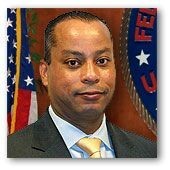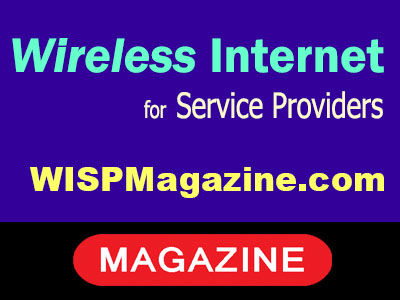By Louis Peraertz, Vice President of Policy for WISPA
If you are an internet service provider – be it wired or wireless (e.g., a WISP) — there are several reasons why you should join WISPA – Broadband — Without Boundaries – now. Historically, WISPA’s top policy priorities involve four categories that are critical to every small WISP’s growth: (1) advancing balanced spectrum allocation — by pushing the FCC to allocate both licensed-by-rule spectrum and unlicensed spectrum, and hold auctions using smaller license areas, such as counties; (2) gaining fair access to buildings and other infrastructure for wireless deployments; (3) ensuring broadband deployment funding programs do not overbuild existing broadband networks and are conducted in a technology-neutral way; and (4) lowering regulatory burdens on small businesses.
WISPA’s Progress With The FCC
Over the past several years, WISPA’s notable policy achievements in these areas include persuading the FCC — in many cases over the objections of large nationwide communications carriers — to: (1) allocate 850 megahertz of spectrum for unlicensed use in the 6 GHz band for outdoor communications; (2) allow fixed wireless providers to overcome unreasonable local laws and mount wireless antennas on buildings to provide competitive service to multi-dwelling unit (MDU ) environments; (3) allow fixed wireless providers to apply to bid, for the first time, in the Gigabit performance tier, for a universal service reverse auction; and (4) reduce the information required on statutorily-mandated broadband consumer labels, and the information required in reports about participation in the affordable connectivity program.
WISPA’s Funding Challenges
Joining WISPA’s policy advocacy effort became even more important on May 13, 2022[LP1] . That is when the National Telecommunications and Information Administration (NTIA) published a Notice of Funding Opportunity (NOFO) for the $42 billion Broadband Equity Access and Deployment (BEAD) program. Unfortunately, this BEAD NOFO imposes rules that will likely harm small WISPs, and make it difficult for them to participate in the program at all. For example, it determined that networks using entirely unlicensed spectrum to serve last-mile locations would not be considered a “reliable broadband” service, even if the WISP made extensive use of fiber or licensed spectrum elsewhere in their network. That means locations receiving broadband speeds even exceeding 100/20 Mbps from such networks, will be considered unserved and could be overbuilt by competitors using those BEAD funds. The NOFO also requires states to impose onerous letter of credit (LOC) obligations on any broadband company that wants to participate in the program.
WISPA has taken several actions to change those flawed aspects of the NOFO. WISPA has mounted an advocacy campaign on Capitol Hill, that has resulted in members of Congress writing letters to NTIA, expressing their disappointment and frustration with the NOFO. WISPA also hired MIT economist Dr[LP2] . Bill Lehr, to undertake an economic analysis and author a white paper (See, https://members.wispa.org/news_archive_headlines.php?org_id=WISP&sniid=33581461#33581461), explaining why excluding networks using unlicensed spectrum from the definition of “reliable broadband” service was both economically unjustified and out of step with industry best practices. Dr. Lehr’s white paper also advises state Broadband Offices, recommending how best to determine which broadband technology tools can help connect their constituents to 100/20 Mbps by using BEAD funds. In addition, WISPA plans to release a guidance memo our members can use to persuade states to seek a waiver from the burdensome letter of credit obligations in the BEAD NOFO. Over the next several months, WISPA’s Policy and Government Affairs team will take other actions to educate state Broadband Offices about their rights to seek waivers from these flawed rules of the BEAD NOFO.
Please Help WISPA Win These Battles, By Joining WISPA
Your voice and engagement are some of our most effective tools, in helping to ensure the continued success of the evolving WISP industry. Help us protect your networks, in your statehouse, and at the federal level! Join WISPA!
 Louis Peraertz is Vice President, Policy at Wireless Internet Service Providers Association – WISPA where he advocates for dynamic spectrum sharing, unlicensed use, and other policies that spur innovative wireless technologies and business models to help bridge the digital divides in our country.
Louis Peraertz is Vice President, Policy at Wireless Internet Service Providers Association – WISPA where he advocates for dynamic spectrum sharing, unlicensed use, and other policies that spur innovative wireless technologies and business models to help bridge the digital divides in our country.
